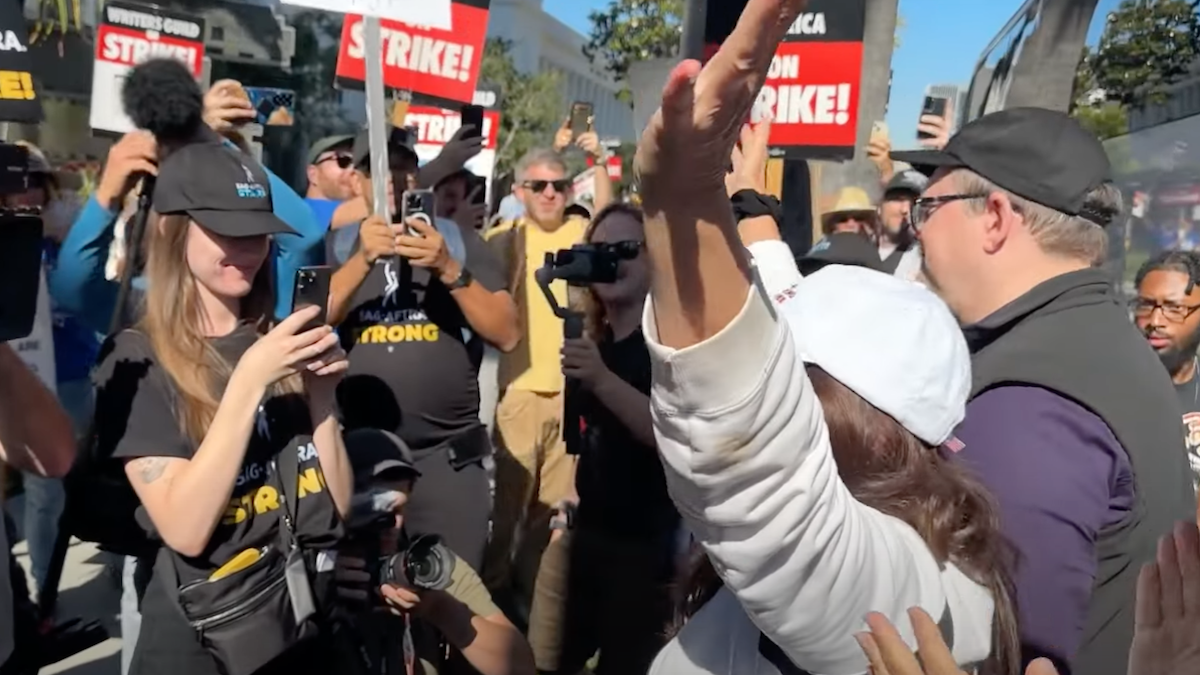There’s no denying that ChatGPT is a marvel of human engineering; an algorithm that confounds even its makers. And sure, there’s a lot of utility to be had in a general-purpose language model like that, but it seems that some Hollywood moguls have entirely the wrong idea about what it can and can’t do.
It’s been well over a month since the Writers Guild of America launched another strike. The union cites disagreements over wages and the raising concern of AI bots like ChatGPT taking over jobs as the main reasons fueling this industry-disrupting walkout, but how much of that concern is valid?
Well, as Yahlin Chang (executive producer on Supergirl and The Handmaid’s Tale) explains it in a new interview with CBS, even if Hollywood gets rid of its writers and uses ChatGPT for scriptwriting purposes, the best it’ll come up with is derivative work.
“You’ll see very unoriginal, mediocre, bad stuff. AI has never held a baby. AI has never fallen in love. So you’ll end up with something stolen and pretty bad.”
You can see the interview for yourself at around the 4:30 mark, where Chang is joined by fellow writer John August.
There isn’t anything in the intellectual or linguistic spectrum that ChatGPT is incapable of performing with the right prompt. You could ask it to come up with a list of ideas for stories, write whole treatments, and even fill in plank pages in your script. And though all of those generated ideas and sentences are unique every time — since the machine gathers information from a random point in its database and then puts it into sentences — they still aren’t what you’d describe as original or innovative, being basically a mashup of everything it has processed up to that point.
For now, Hollywood might be toying with the idea of replacing real creatives with AI, but the studios will come around when those shareholders and top-level decision-makers learn about the true limits of the technology.
